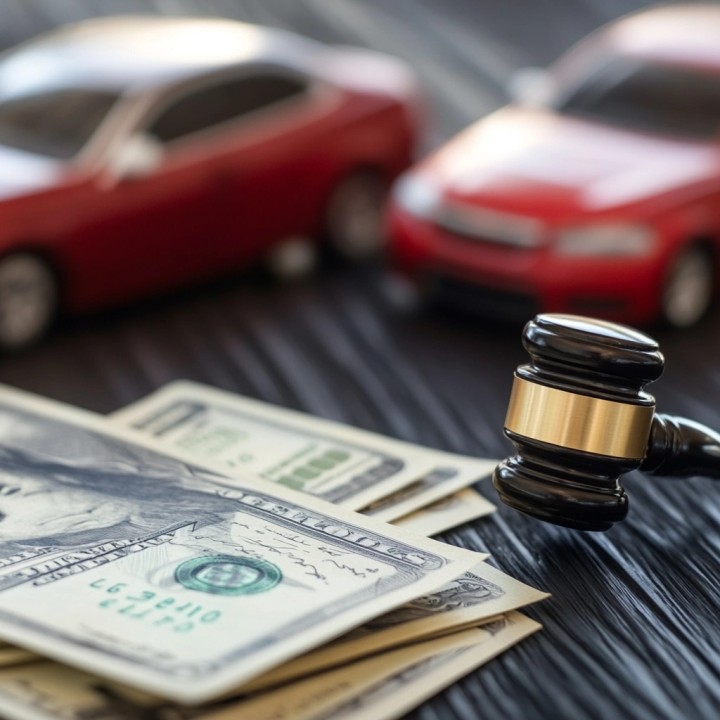Definition and Importance of Vehicle Registration
Vehicle registration is a legal process that associates a vehicle with a specific owner and assigns a unique registration number. This process ensures that vehicles on the road are accounted for, contributing to road safety and law enforcement.
Legal Requirements for Vehicle Registration
Each state has specific legal requirements for vehicle registration. Generally, vehicles must be registered within a certain timeframe after purchase or moving to a new state. Registration involves providing proof of ownership, identity, insurance, and payment of applicable fees.
Penalties for Driving an Unregistered Vehicle
Fines and Monetary Penalties
The most common penalty for driving an unregistered vehicle is a fine. The amount varies by state but can range from $100 to $500 or more. Repeat offenders may face higher fines.
Impoundment of the Vehicle
In some cases, law enforcement may impound the vehicle if it is found to be unregistered. Retrieving the impounded vehicle requires paying additional fees, including towing and storage costs.
Court Appearances and Legal Consequences
Driving an unregistered vehicle can result in a court summons. If found guilty, the court may impose additional penalties such as community service or mandatory vehicle registration.
Increased Insurance Premiums
Insurance companies may view driving an unregistered vehicle as a sign of irresponsible behavior, leading to increased insurance premiums. This can significantly impact the cost of maintaining vehicle insurance.
Steps to Register Your Vehicle
Gathering Necessary Documentation
To register your vehicle, you need to gather specific documents, including:
- Proof of ownership (e.g., title or bill of sale)
- Proof of identity (e.g., driver’s license)
- Proof of insurance
- Completed registration application
- Payment for registration fees
Visiting the DMV or Authorized Centers
You can register your vehicle by visiting the Department of Motor Vehicles (DMV) or authorized registration centers. Ensure you bring all necessary documentation and be prepared to pay the registration fees.
Online Vehicle Registration Options
Many states offer online vehicle registration services. This convenient option allows you to complete the registration process from home, provided you have all required documents and a method for online payment.
Renewing Vehicle Registration
Registration Renewal Process
Vehicle registration must be renewed periodically, usually annually or biennially. The renewal process involves submitting updated information, paying renewal fees, and receiving new registration stickers.
Common Renewal Mistakes
Common mistakes include missing renewal deadlines, providing incorrect information, or failing to complete required vehicle inspections. These errors can lead to late fees and other complications.
Late Renewal Penalties
Failing to renew your registration on time can result in late penalties. These fees increase the longer you delay renewal, so it’s crucial to stay on top of registration deadlines.
Tips to Avoid Registration Issues
Keeping Track of Registration Deadlines
Mark your calendar with registration deadlines to avoid late fees and penalties. Many states also offer email or text reminders for upcoming renewals.
Setting Up Renewal Reminders
Set up renewal reminders through your DMV’s online services or use personal calendar alerts. Staying organized helps ensure you never miss a renewal deadline.
Understanding State-Specific Requirements
Each state has unique registration requirements and fees. Familiarize yourself with your state’s rules to ensure compliance and avoid unexpected issues.
Frequently Asked Questions (FAQs)
What happens if I get caught driving without registration?
If caught driving without registration, you can face fines, vehicle impoundment, and potential court appearances. Penalties vary by state but can be severe.
How do I register my vehicle if I’m out of state?
To register an out-of-state vehicle, contact the DMV in your new state for specific instructions. Typically, you’ll need to provide proof of ownership, identity, and insurance, along with paying any applicable fees.
Can I drive a new car home without registration?
In most states, you can drive a new car home with temporary tags or a temporary permit issued by the dealership. Check with your state’s DMV for specific regulations.
What documents are needed for vehicle registration?
Commonly required documents for vehicle registration include the vehicle title, proof of identity, proof of insurance, and any necessary inspection certificates. Check with your state’s DMV for a complete list.
How long do I have to register a new vehicle?
The timeframe for registering a new vehicle varies by state but is typically between 30 and 60 days after purchase. Consult your state’s DMV for specific deadlines.
Are there any grace periods for expired registration?
Some states offer grace periods for expired registration, during which you can renew without facing penalties. However, driving with expired registration during this period may still result in fines. Check with your DMV for details.
Conclusion
Driving an unregistered vehicle carries significant legal and financial risks. Ensuring your vehicle is properly registered and staying on top of renewal deadlines can help you avoid these consequences. By understanding the registration process, gathering necessary documentation, and utilizing available resources, you can maintain compliance with state laws and enjoy hassle-free driving.






